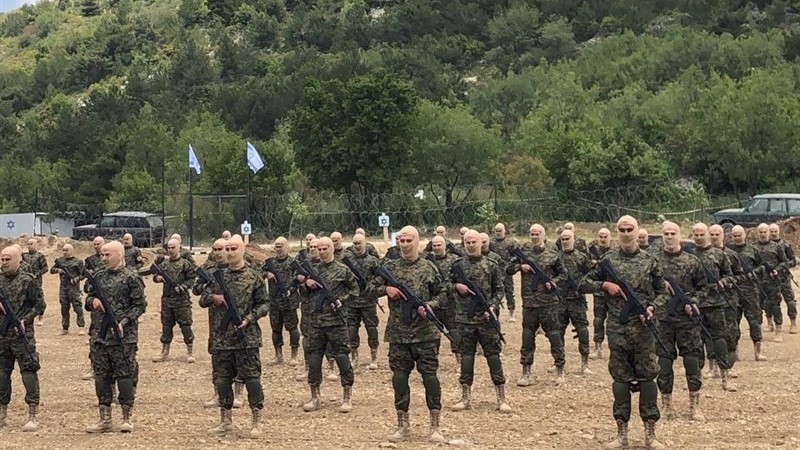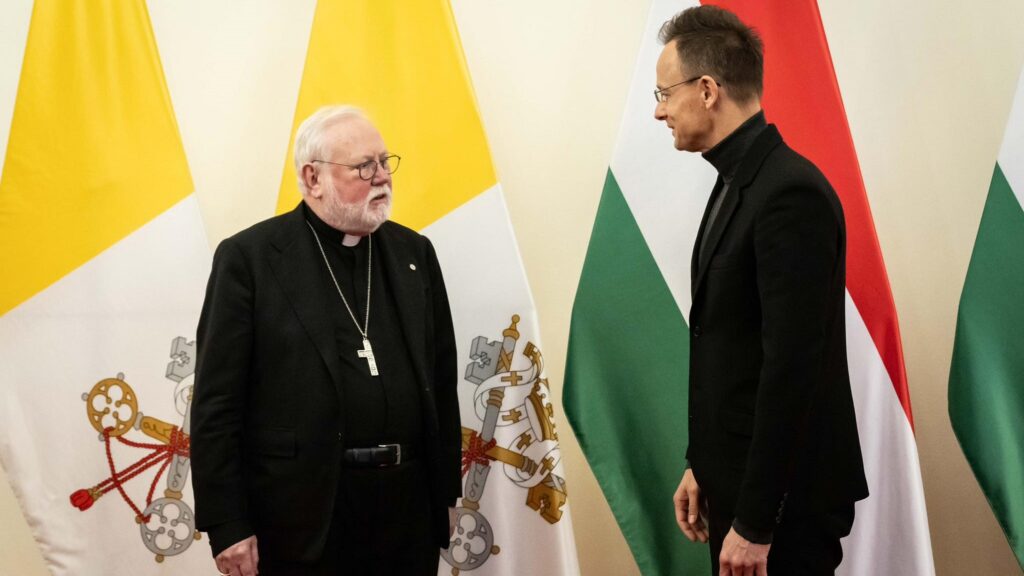Levente Benkő is a historian and foreign policy expert, who has served as a government official and as a diplomat, heading the Hungarian embassy in Israel between 2018 and 2023. The former ambassador is currently the international director for the Centre for Digital Sovereignty. In an interesting analysis recently posted on Facebook, Benkő looks at the situation in the Middle East, in the context of the broader geopolitical dynamics of the region, framing his arguments from the perspective of Hungarian national interest. (Since Benkő’s analysis was published, after nearly fourteen months of heightened hostilities, the Israeli government and Hezbollah have agreed to a ceasefire, as Hungarian Conservative has also reported.)
Benkő describes the 7 October Hamas attack on Israel not just as a massacre carried out with ‘extraordinary brutality’ but also as a turning point that disrupted the delicate regional balance. He argues that this aggression stemmed from the perception that Western powers, especially the US and Europe, were becoming less willing and capable of defending Israel. This apparent shift emboldened Israel’s adversaries, leading them to act on long-term strategic goals, which was echoed in the West by the violent crowds in European and North American cities ‘wrapped in Palestinian flags’.
‘The Hamas aggression stemmed from the perception that Western powers were becoming less willing and capable of defending Israel’
Benkő highlights that for Israel, Hamas’s brutal attack necessitated a forceful response in order to restore deterrence. He then points out that Israel has no choice but to confront its enemies decisively, even with or without the help of the US, starting with Hamas in Gaza. By doing so, while not eliminating resistance to Israel as such, at least prevents it from taking the form of an organized insurgency. The former diplomat also stresses that Israel has to remain permanently in Gaza as a military occupying force, as otherwise Hamas will again turn the Gaza Strip into its stronghold.
Hezbollah’s Threat to Israeli Security
Benkő points out that while the Gaza conflict often dominates headlines, the threat from Hezbollah, backed by Iran, poses a far more severe challenge to Israel’s security. Benkő underscores Hezbollah’s unique nature as both a political entity and a military force embedded within Lebanon’s Shiite community, which serves as Iran’s forward strike capability against Israel, equipped with advanced military infrastructure. Hezbollah’s arsenal includes hundreds of thousands of rockets—some with precision guidance—that could overwhelm Israel’s defences and inflict significant strategic damage. The group’s preparedness includes networks of cross-border tunnels (which Benkő personally observed in 2018), designed to enable incursions into northern Israel.
Benkő also highlights that Hezbollah entered the conflict on 8 October last year, the day after the Hamas attack. In October 2023, Hezbollah initiated a ‘limited war,’ firing rockets into northern Israel in solidarity with Hamas, while avoiding outright war. This forced Israel to evacuate over 60,000 residents from its the north, creating what Benkő describes as a ‘de facto buffer zone’ inside Israel—a scenario untenable for Israel in both strategic and domestic terms.
According to Benkő, after the the kinetic phase of the Gaza operations concluded, Israel turned its attention north. The Israel Defense Forces (IDF) removed the more serious figures from the Hezbollah chain of command, followed by the ‘pagers’ operation and the beheading of the entire Hezbollah leadership in one fell swoop. Benkő reminds, however, that a significant part of Hezbollah’s missile capability is probably still operational, and the militant groups continues to fire at Israel’s northern regions. Nevertheless, the organization as such has been dismantled; there are no leaders to make decisions, and any successors who might fill the vacant command posts are, for the moment, in hiding.
Despite the success in eliminating key figures within Hezbollah, Benkő says, targeted strikes alone cannot defeat the organization. Israel has a limited window of opportunity to inflict lasting damage to Hezbollah’s offensive capabilities, particularly its missile stockpiles. Benkő suggests that Israel is capitalizing on this opportunity by aiming to eliminate as much of Hezbollah’s missile capability as possible through both airstrikes and a planned ground operation in southern Lebanon. The goal, as Benkő highlights, is to clear the south Lebanese border of Hezbollah militants and restore security to northern Israel. However, this strategy is not without its challenges. The logistical and political realities of maintaining security in the region make it difficult for Israel to secure its border without establishing a permanent military buffer zone in southern Lebanon. While Israeli officials have officially denied the need for such a zone, Benkő argues that Israel’s strategic imperatives likely dictate otherwise.
The Future of Lebanon: Demographic and Political Shifts
Benkő also explores the internal dynamics within Lebanon that complicate Israel’s strategy. The country is experiencing significant demographic changes, with the Shiite community—strongly aligned with Hezbollah—growing, while the Christian community dwindling. These shifts have the potential to destabilize Lebanon even further, as the Sunni community, traditionally aligned against Hezbollah, may become more emboldened with Saudi Arabian support.
‘The potential for Lebanon to spiral into another civil war, akin to the 1975–1990 conflict, looms large’
However, Benkő cautions, the internal Lebanese political landscape is fragmented. While the Sunni community may oppose Hezbollah’s Iranian-backed influence, there is also deep-seated historical hatred towards Israel. The question, as Benkő puts it, is whether this rivalry will outweigh the Sunni community’s desire to counter Hezbollah’s growing power. The potential for Lebanon to spiral into another civil war, akin to the 1975–1990 conflict, looms large.
Israel’s past attempts to influence Lebanon through Christian militias during the civil war ended in failure, highlighting the difficulty of manipulating local politics in Lebanon. With no clear political or military partner on the ground, Israel’s intervention in Lebanon could lead to unintended consequences, including the further fracturing of the Lebanese state.
An Iran–Israel War on the Horizon
Benkő highlights Iran’s precarious position amidst rising tensions with Israel. Rooted in a long history of Persian dominance, Iran seeks regional influence through its ideological resistance to Israel and alliances with Shiite organizations. However, its economy is weakened, revolutionary zeal has faded, and its military faces logistical issues. Despite successes in Iraq, Syria, Lebanon, and Yemen, Iran tries to avoid direct warfare, relying instead on incremental influence.
Israel has disrupted this strategy, escalating confrontations with targeted strikes on Iranian and allied leaders. This forced Iran to respond, including missile strikes in April and October, to maintain its credibility. Meanwhile, Israel is dismantling Hezbollah’s threat, paving the way for a potential direct conflict with Iran, especially as Prime Minister Netanyahu seeks to secure his legacy and act during a politically advantageous U.S. election cycle.
The former diplomat points out that for Iran, this moment is disastrous, with its regional alliances crumbling under Israeli pressure. Strategically cornered, Tehran faces a dilemma: whether to escalate, or risk further losses. As the regional balance tips, a direct and dangerous Iran–Israel conflict looms.
Three Stages of Israel’s Potential Strikes Against Iran
Levente Benkő argues that war between Israel and Iran is now inevitable as Israel seeks to dismantle Iran’s strategic infrastructure, alliances network, and nuclear ambitions. This escalation follows Iran’s failure to deter Israeli actions through US intervention. Benkő outlines three stages of Israel’s potential strikes: first, targeting military and air defence systems; second, crippling Iran’s oil facilities, which are vital to its economy; and finally, attacking Iran’s dispersed and fortified nuclear program, despite opposition from the US and the G7.
Iran, with little left to lose, may retaliate with overwhelming missile strikes on Israel or by closing the Strait of Hormuz, which is a critical chokepoint for global oil trade. According to Benkő’s analysis, such actions could provoke US involvement and alienate allies like China, a country that relies heavily on Gulf oil. Russia’s role in the conflict is also crucial, as Moscow—previously neutral on Israeli strikes—may side with Tehran due to their partnership in the Ukraine conflict, potentially complicating Israeli operations through Syrian airspace.
According to the former diplomat, there is a threat of an economic fallout. Disruptions in the Gulf, particularly a closure of the Strait of Hormuz, could spike oil prices, exacerbating inflation and straining the Biden administration, which has already depleted US oil reserves. Benkő concludes that Israel’s escalation is unavoidable, and Iran’s responses will determine whether the conflict remains regional or escalates into a broader crisis with profound global consequences.
Supporting Israel Aligns With Hungary’s National Interest
Benkő reminds that Hungary firmly supports Israel’s right to self-defence, a position consistently upheld by the Orbán government despite international criticism. Hungary views Israel not only as a strategic ally but also as a bastion of shared civilizational values—values that once defined Western success but are now waning in the West itself. The diplomat highlighted that supporting Israel aligns with Hungary’s national interests, demonstrating a commitment to these values while strengthening diplomatic ties, including with the United States, without alienating key Muslim and Arab partners.
‘Hungary views Israel not only as a strategic ally but also as a bastion of shared civilizational values’
At the same time, Benkő emphasized that Hungary has a vested interest in preventing the current Israel-Iran conflict from escalating into a full-scale regional war. Such an escalation could have dire consequences, including surging energy prices and the reactivation of conflicts in Lebanon, Syria, and Yemen, potentially sparking new waves of migration toward Europe.
As Hungarian Conservative reported, the International Criminal Court issued arrest warrants for Israeli Prime Minister Benjamin Netanyahu, his former defence minister Yoav Gallant, and Hamas leader Ibrahim Al-Masri on charges of alleged war crimes and crimes against humanity. Hungarian Prime Minister Viktor Orbán, following his practice to support Israel, condemned the decision, stating that Netanyahu would not be arrested if he visited Hungary.
Read more on Israel and the Middle East:








